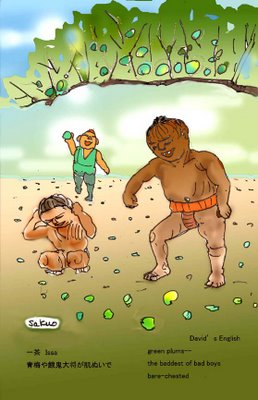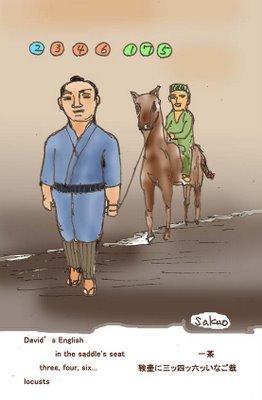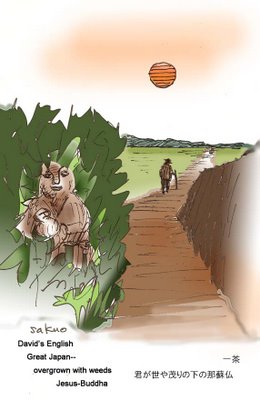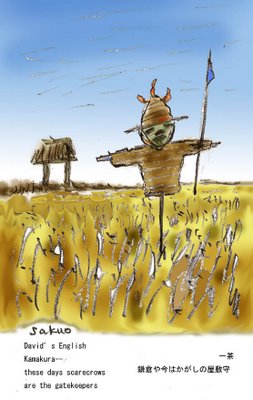
1795
Issa
つくづくと鵜ににらまるる鵜飼哉
tsuku-zuku to u ni nirama[ru]ru ukai kana
David’s English
the cormorants stare
at them hard...
cormorant fishermen
sakuo Renku
水に潜らず魚も取らず
mizu ni mogurazu sakana mo torazu
no diving into water
no catching fish
 1795
1795  1795
1795 1793
1793  1793 30 years old ,on the journey, being in Nagasaki where many Christians
1793 30 years old ,on the journey, being in Nagasaki where many Christians Issa Original
Issa Original 1792 age 30, on his journy to Western Province.
1792 age 30, on his journy to Western Province. 1792 30 years old, on his journey to the West.
1792 30 years old, on his journey to the West.